Don’t we all love watermelon? It makes a summer heat bearable and satisfies our craving for sweets! If you want to share it with your backyard feathered friends, you might wonder: can chickens eat watermelon? Of course they can! And they relish it immensely, even when they don’t have a sweet tooth! In this article, we will discuss more useful facts about backyard chicken.
Can Chickens Eat Watermelon And The Rind?
Watermelon is healthy and delicious, your chickens will definitely enjoy it. Consisting of 92 percent of water, watermelon embodies a great summer treat! It will hydrate your flock correspondingly, making the insufferable summer heat easier to cope with!
Your backyard chicken will eat and eat some more until the watermelon is all gone! They’ll eat the flesh, seeds and the rind. You’ll find no signs of the watermelon in a half an hour’s time! So, watermelon is a great way of adding a little flavor to your chickens’ diet and enhancing their health.
Next time you’re enjoying a refreshing slice of this yummy fruit, don’t forget to save some for your feathered pets, they’ll genuinely appreciate it!
Why Is Watermelon a Healthy Treat?
Watermelon is rich in vitamin A, B6 and C and powerful antioxidants. Watermelon also contains riboflavin, thiamin, niacin, folate, pantothenic acid, phosphorus, magnesium, zinc, potassium, manganese, copper, selenium, choline, betaine, and lycopene. According to the National Watermelon Promotion Board, watermelon contains more lycopene than any other fruit or vegetable.
Recent studies have showed that you can get the best nutritional benefits of watermelon when allowing it to fully ripen. For example, the biggest jump in lycopene content occurs at the time when a watermelon’s flesh turns from white-pink to pink. When the flesh of a watermelon is mostly in white color, its beta-carotene content is almost zero. As it gets from pink to red, the content of beta-carotene and lycopene increase steadily. Also, antioxidant levels increase significantly when the watermelon ripens. It’s best to feed the fully ripen watermelon to your chickens in terms of nutrient benefits.
How To Choose a Fully Ripened Watermelon
If you are buying a pre-cut watermelon, choose the one that is deepest in color and lacks of any white streaking. The seeds should also be deep in color or white.
When buying uncut and whole watermelon, make sure it feels heavy. Fully ripened watermelon’s water content will increase and that makes the watermelon heavier. The fully ripened watermelon contains 90% of water in terms of weight.
Select a watermelon with a smooth rind that is a little bit dulled on top. The bottom of a watermelon has a spot when the watermelon was resting on the ground. If that spot is white or green, the watermelon is most likely not fully ripened. Uncut watermelons are best stored at 50-60 F.
Diminished Egg Production – Why Does It Happen?
Collecting fresh, healthy eggs right from the nest is truly rewarding but sometimes the egg production decreases unexpectedly and you cannot pinpoint the reason! If you notice a decrease in your chickens’ egg production that indicates a problem most of the times.
If you observe a general inconsistency in your flock’s egg production, it can be triggered by a range of aspects such as environmental, emotional and physical factors. If this occurs, you should ask yourself the following questions: did you change your flock’s diet or housing arrangements? Did you add new birds to your existing flock? Did you observe any illness signals – eye discharge, weariness or unusual droppings?
Molting – a Possible Cause Triggering a Decreased Egg Production
Molting is the natural process through which chickens re-grow their feathers. Most of the times, the protein and calcium intake needed for producing eggs will be required during molting, thus causing a decreased egg production. Consider increasing the amount of proteins you are feeding your chickens, aiding at effectively stimulating the re-growth course of the feathers.
Stress
We are not the only ones who suffer from stress, apparently chickens do too. As a matter of fact, they are quite sensitive to sudden changes which may lead to imminent anxiety. Chickens are not big fans of change, so if you thought of enlarging your flock and didn’t consider taking the proper measurements in order to prevent your feathered pets from stress and anxiety, you’ll undoubtedly notice a diminished egg production.
Stress may be caused by a number of aspects: the existence of a possible predator in the proximity of the coop, new flock members, significant housing alterations, internal or external parasites, heat and cold.
So, did your feathered pets experience any of the mentioned above outcomes? If so, ensure yourself your flock feels safe again to enhance the egg production.
Your Hens Might Be Hiding Eggs
This is something quite common for backyard chickens. If your chickens benefit from a large area, they can explore at their free will. Make sure that you should keep an eye out for possible egg nesting areas and eventually you might be surprised of what you’ll find hidden!
Make sure to train your hens correspondingly, in order to avoid that from happening.
Your Hens Could Be Eating Eggs
That could also be the reason triggering a lower egg supply. If a hen stumbles across a broken egg in the nest, the temptation to give it a try is imminent and if that happens once, it will happen twice. Hens do take pleasure in eating eggs and it’s quite difficult to prevent them from doing this once they get the hang of it. However, sometimes this occurs as a result of an imbalanced diet, lacking nutrients and calcium.
Your Hens Might Be Too Old
Naturally, as they grow older, your hens’ egg production will diminish. If you wish to bring your egg production back to life, consider enlarging your flock by adding a couple of young chicks!
Insufficient Water
Providing your chickens with fresh, clean water is vital both for their health and for an increased egg production. Your chickens must be able to properly hydrate themselves by drinking plenty of water.
If the water is too far for them to reach, too hot or too cold, they might end up not drinking it, thus becoming stressed and not laying eggs as they would on a regular basis. Consequently, do make sure to provide your flock with proper water at all times, regardless of the weather.
Related articles:
References:
http://www.raising-happy-chickens.com/healthy-chicken-treats.html
http://www.the-chicken-chick.com/2012/12/decrease-in-egg-production-causes.html
http://blog.mypetchicken.com/2012/03/02/treats-for-chickens/
http://www.livescience.com/46019-watermelon-nutrition.html
http://whfoods.org/genpage.php?tname=foodspice&dbid=31

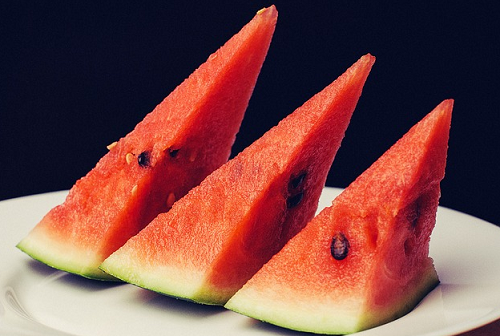
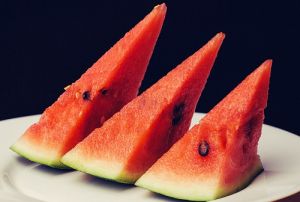


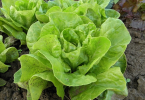
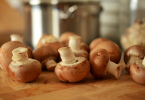
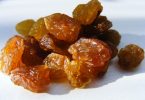
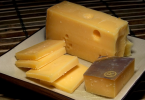
Leave a Comment